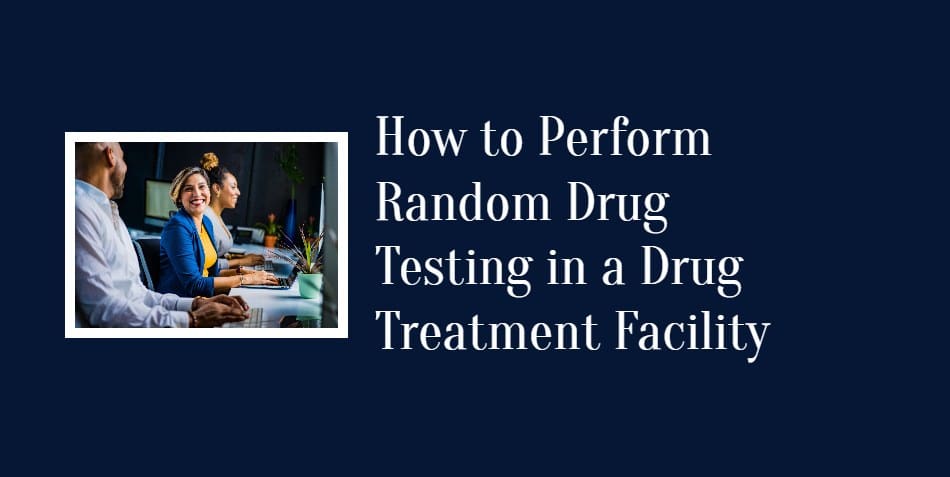Patients at drug treatment facilities are not there simply to listen to lectures. Nor they meant just to engage in self-realization activities. They are at these rehab centers to rid themselves of their very real substance abuse problems. Such rehabilitation is usually a protracted process that requires monitoring.

Random Drug Testing: How to Conduct it in a Drug Treatment Facility?
In most cases, patients at these facilities have already tested positive for illegal substances. But things should not end there. The initial drug screening serves as a baseline on which to base the ongoing progress of the rehab program. Random drug testing is, therefore, an essential component of the entire drug abuse treatment program.
Random tests are often viewed as a further invasion of one’s personal space. But the truth is, these random tests encourage a patient under rehab to cultivate a spirit of mutual trust with one’s therapist or counselor. It’s a way for patients to provide therapists with the much-needed confidence in their willingness to move forward on the road to sobriety.
What happens at the facility
Workers at the facility help keep patients who reside at the rehab center clean throughout the duration of the drug treatment program. They make thorough inspections of the patient’s person and belongings to sure no questionable substances brought into treatment with them. The institution can also put in place safeguards to prevent any of these substances from smuggled in by visitors and even staff members.
For patients who are non-residents, however, there is no surefire way to ensure that they stay clean during the time they are at home or away from the treatment facility. The only means of ensuring this is by setting the deterrent in the form of random drug testing. Experience has shown that patients who enter rehab programs willingly not averse to these tests, and do not find them intimidating if they truly sincere in their wish to rehabilitated.

These tests meant to discourage patients from backsliding. They not designed to “bust” those who cheat or yield to temptation. However, there should still agreed-upon ramifications or consequences for patients who fail random drug testing. Such consequences are between the counselor and the patient, without needing to involve the legal system.
Random drug testing is advised over-scheduled drug testing. This is because randomized tests make patients unable to determine when it is their turn at the bat. With this scheme, it is impossible for a patient to “cram for a test.” They not given time to detoxify or clean themselves up before a test. If a test could come at any time, patients have to stay drug-free all the time.
It is also of utmost importance to use the least obtrusive, yet highly reliable drug testing techniques available. Among the various types of drug tests currently available, urine tests are the most highly preferred. Such tests can administered by any responsible staff member. They do not require anything more unpleasant for the patient than having to urinate into a test cup.
Learn more about the highly accurate and easy-to-administer single urine cup 12 panel drug tests. Check out the Ovus Medical blogs.
How to properly use drug test cups and strips: Click Here

